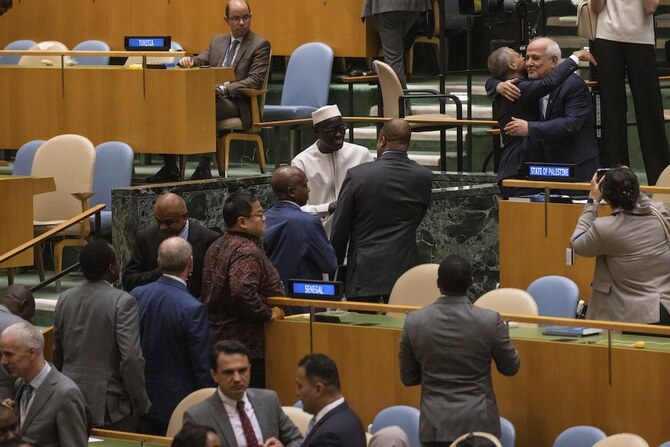London: Senior US officials say Israel’s continued bombardment of Gaza only risks civilian casualties after the IDF “achieved all that it can militarily.”
The New York Times reported that national security officials in Washington believe Israel will never be able to eliminate Hamas.
As the Biden administration pushes to restore ceasefire negotiations, senior officials are moving toward calling for an outright cessation of IDF activity in the enclave.
Since October, Israel claims to have killed about 14,000 combatants.
It also declared that about half of the leadership of Hamas’s armed wing, the Al-Qassam Brigades, had been killed, including Mohammed Deif and Marwan Issa.
Hamas, however, continues to deny that Deif was killed in a July 13 airstrike.
Despite Israel’s claims, the IDF has yet to achieve one of its major goals in securing the return of about 115 living and deceased hostages who were captured on Oct. 7 last year.
Current and former officials from both the US and Israel told the NYT this could not be achieved through military means.
Gen. Joseph Votel, former head of US Central Command, said: “Israel has been able to disrupt Hamas, kill a number of their leaders and largely reduce the threat to Israel that existed before Oct. 7.”
Though Hamas was now “a diminished” organization, the release of the hostages “could be secured only through negotiations,” he added.
The opinion shift among US officials comes as Washington sends its top envoys across the Middle East in a bid to strengthen prospects of a Gaza ceasefire and avert an Iranian retaliatory attack on Israel.
Figures including CIA Director William Burns, envoy Amos Hochstein and Middle East coordinator Brett McGurk have been dispatched to Qatar, Egypt and Lebanon, respectively.
Friction has also surfaced within Israeli Prime Minister Benjamin Netanyahu’s war cabinet.
The Israeli leader this week rebuked his defense minister, Yoav Gallant, for disputing the government’s stated goal of achieving “total victory” over Hamas.
Gallant has argued that reaching a ceasefire is the best option to ensure the return of Israeli hostages.
Israel has also struggled to prevent Hamas cells in Gaza from regrouping in the wake of IDF declarations of victory in local battles.
Earlier this year, Israel claimed to have destroyed a Hamas presence in northern Gaza’s Jabaliya camp but was forced to return in May following the re-emergence of fighters.
Hamas’s vast tunnel network, which “proved much larger than Israel anticipated,” has been crucial in its strategy of rebuilding local cells in the wake of skirmishing, the NYT said.
Officials in the Pentagon have privately complained that Israel has failed to demonstrate an ability to firmly secure territory in Gaza.
Ralph Goff, a former CIA official who served in the Middle East, told the NYT: “Hamas is largely depleted but not wiped out, and the Israelis may never achieve the total annihilation of Hamas.”
Within the Biden administration, opinion is growing that Hamas should be guaranteed its survival, albeit on the sidelines of Gazan politics, as a precursor to a ceasefire.
The biggest incentive, however, remains the chance of a pathway to an independent Palestinian state.




























